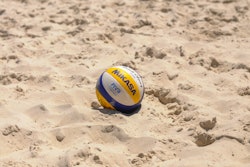As prime breeding grounds for military fitness initiatives, installations worldwide also focus on thousands of civilian employees. Behind White House and other administrative encouragement, installations offer a variety of innovative programs to address civilian fitness. Even with budget concerns creating questions about the future of many programs, fitness facilities across the services continue promoting adaptable approaches that other facilities might emulate.
In October 2012, Army Installation Management Command began a six-month pilot program to study expanding civilian fitness opportunities. Its structure reflects the Defense Department's Civilian Fitness & Wellness program, which allows civilian employees, with supervisor approval, to take one hour of administrative leave three times a week and devote it to fitness. Civilians can receive application packets and release forms from garrison directors.
Col. Gregory Gadson, garrison commander at Ft. Belvoir, Va., took the ball and ran with it in 2012, and by June the base's own program had emerged. Other facilities are developing their own civilian fitness programs, as well.
Each person in Belvoir's program, for example, receives a packet with health and fitness educational information, sample workouts and tracking forms. They also receive free access cards for aerobic classes, bicycle rental and other activities. In addition, a "fitness liaison" is available for help.
The program is ever-evolving, according to Mica Koefod, fitness program specialist at Belvoir. This helps "further boost participation and the value of the program."
For facilities considering expanding similar programs, however, challenges exist. At Belvoir, Koefod notes via e-mail that although "free time off" sells itself, participation isn't as high as they would like.
"The furlough has really thrown a wrench into our plans," Koefod says. "We're in the process of overhauling the program to make it less demanding of civilian schedules and easier to administer."
Koefod says they continue with promotional efforts on the base website and through social media to get the word out about the program.
The Air Force is working to encourage civilian fitness, as well. For example, Pamela Coffey, fitness and sports center director at Vandenberg Air Force Base, Calif., believes one of the biggest boons to the program that allows civilians three hours each week to work out is that they can fit exercise into their busy schedules. But she notes via e-mail that since the program is not an entitlement, it can be a challenge "when mission requirements prevent an employee from participating."
At Vandenberg, civilians take advantage of group exercise classes, cardiovascular equipment, weight training and even participate in sports and often enlist personal trainer services. Some incentives help encourage individuals to take advantage of fitness benefits. "One of the programs the fitness center offers is called '30-Minute Mania,' in which the participants exercise for 30 minutes or more," Coffey says. "Once they complete their exercise, their name is entered into a drawing." At the end of each month, the winners receive a prize and they're advertised as the monthly winners.
At Naval Station Great Lakes, Ill., sports and fitness director Bob Marfechuk is undaunted, even with budget uncertainty looming. Previously, the base charged civilians a facilities fee but currently does not. Regardless of whether fees for civilians are reimplemented, Marfechuk says he looks at individuals as patrons, not as active-duty versus civilian.
"It's one whole unit; and yes, the majority of our patrons are active duty, their spouses and kids," he says. But the facility pays close attention to civilian use. "The civilian instances [are as] important, and we do take their suggestions and do what's right for all involved when it comes to selecting hours of operation, what remains open, what closes."
But Marfechuk also says that it doesn't take a "gym rat" to get back in shape. He has often encouraged people to simply begin by taking a walk around the block. Over time, it can make a big difference in personal fitness. For Marfechuk, fitness is a lifestyle choice. And it's a choice that facility operators continue to promote through their civilian programs.




































